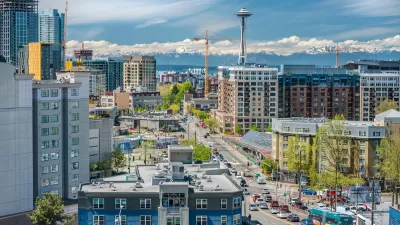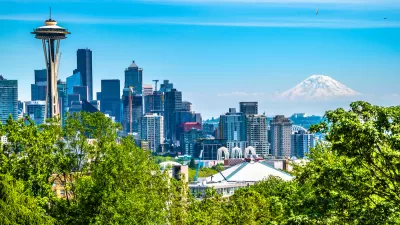Seattle has been allowing developers to build higher buildings in exchange for contributing to a fund for affordable housing. But with few units built, officials are hoping to rewrite the legislation to remove restrictions and get more housing built.
"The legislation - passed in 2001 for commercial buildings and 2006 for residential buildings - requires developers who want to build taller buildings to pay into an affordable-housing fund. The developers paid in, but officials now say there were too many restrictions on how to spend the money."
"First, the money must be used for new construction downtown - where space is limited and land prices are high. And the funding formula is so complex it includes numbers taken out to eight decimal points."
"This month, the City Council voted to expand that policy beyond downtown. As council members, developers and housing advocates hashed out the details of the expansion, some questioned whether the existing program is even working."
"The money from developers was expected to create 900 new homes for people of low and moderate incomes by 2011. But on the eve of 2009, only about 300 have been built."
"The City Council will consider loosening the restrictions early next year, said Councilmember Sally Clark, who chairs the Planning, Land Use and Neighborhoods Committee."
FULL STORY: Seattle may ease rules to encourage affordable housing downtown

Maui's Vacation Rental Debate Turns Ugly
Verbal attacks, misinformation campaigns and fistfights plague a high-stakes debate to convert thousands of vacation rentals into long-term housing.

Planetizen Federal Action Tracker
A weekly monitor of how Trump’s orders and actions are impacting planners and planning in America.

In Urban Planning, AI Prompting Could be the New Design Thinking
Creativity has long been key to great urban design. What if we see AI as our new creative partner?

King County Supportive Housing Program Offers Hope for Unhoused Residents
The county is taking a ‘Housing First’ approach that prioritizes getting people into housing, then offering wraparound supportive services.

Researchers Use AI to Get Clearer Picture of US Housing
Analysts are using artificial intelligence to supercharge their research by allowing them to comb through data faster. Though these AI tools can be error prone, they save time and housing researchers are optimistic about the future.

Making Shared Micromobility More Inclusive
Cities and shared mobility system operators can do more to include people with disabilities in planning and operations, per a new report.
Urban Design for Planners 1: Software Tools
This six-course series explores essential urban design concepts using open source software and equips planners with the tools they need to participate fully in the urban design process.
Planning for Universal Design
Learn the tools for implementing Universal Design in planning regulations.
planning NEXT
Appalachian Highlands Housing Partners
Mpact (founded as Rail~Volution)
City of Camden Redevelopment Agency
City of Astoria
City of Portland
City of Laramie





























